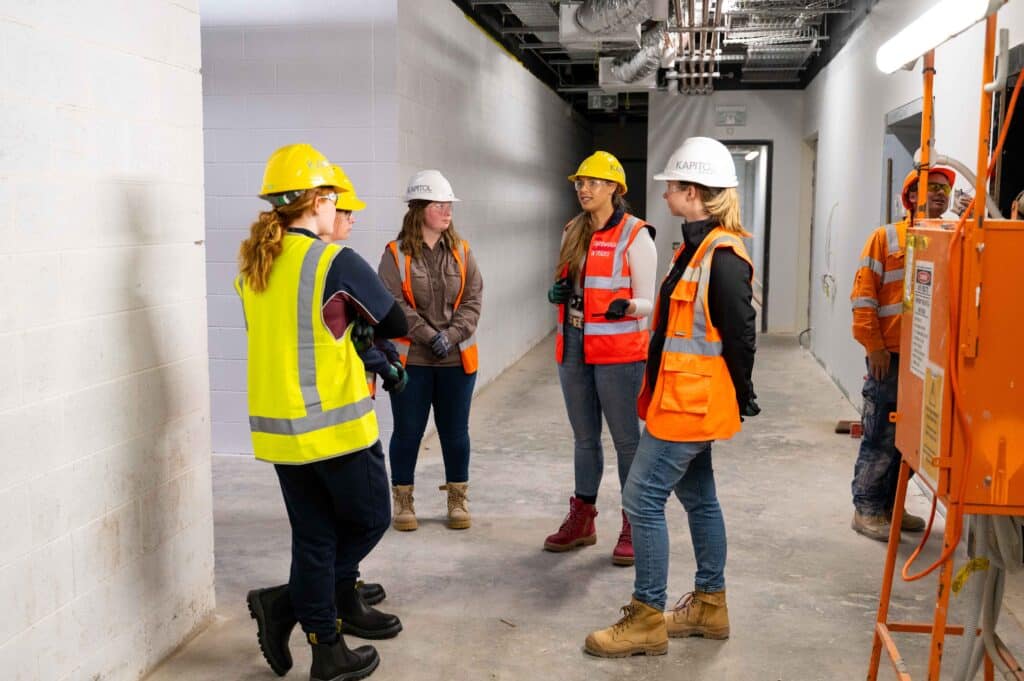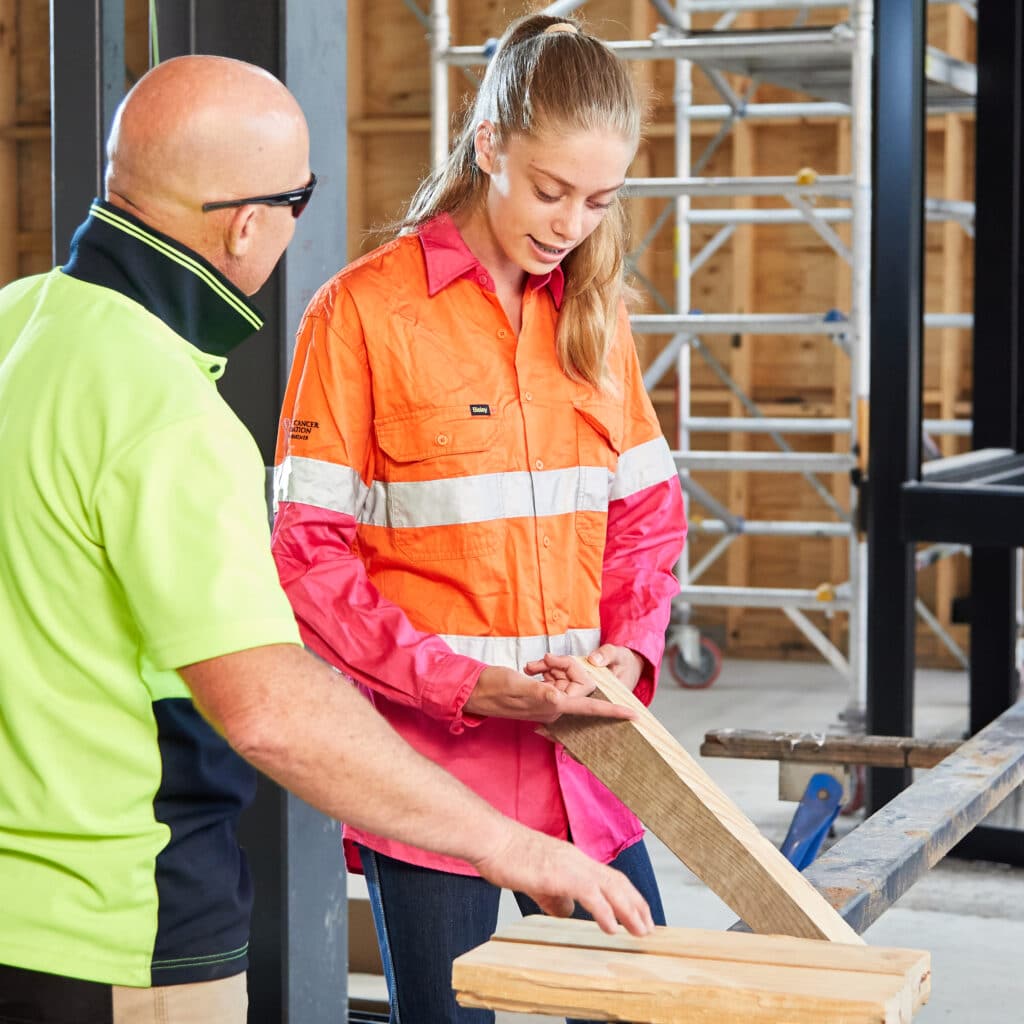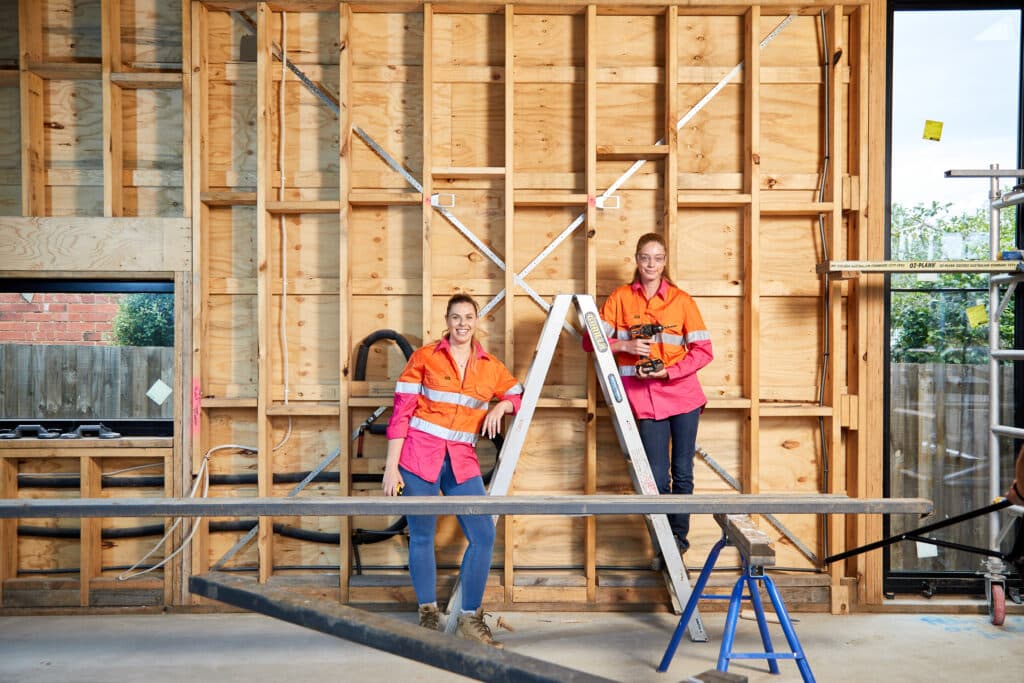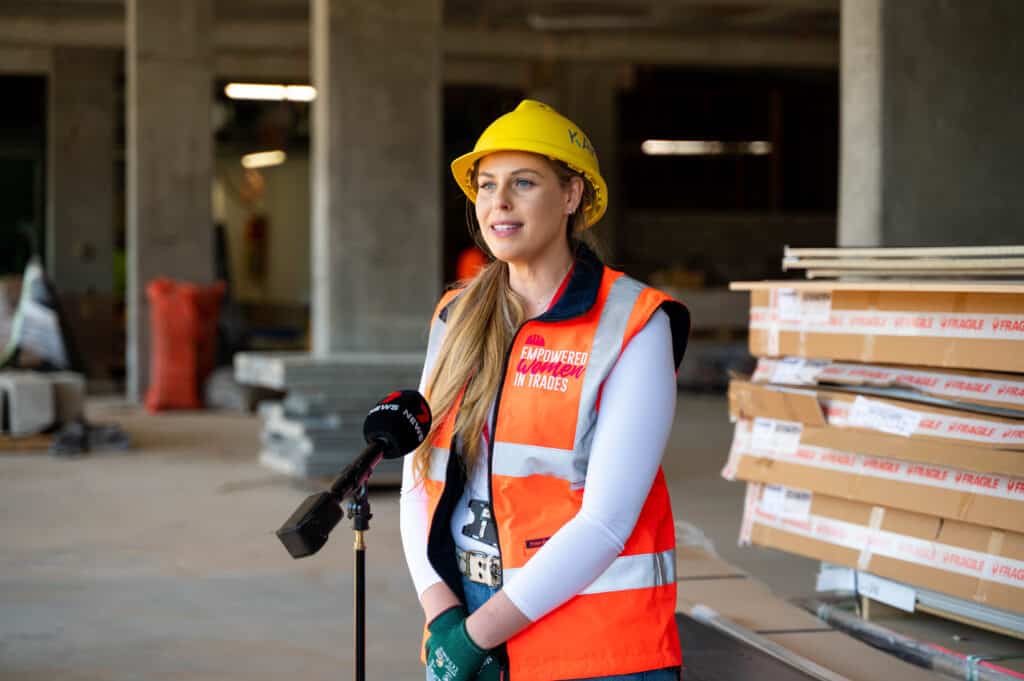Across Australia’s workforce, few sectors stand out as starkly as the skilled trades when it comes to gender disparity. Despite trade industries like manufacturing, construction, and mining being some of the nation’s major employers, female representation in these fields remains alarmingly low.
Women and non-binary people in certain trades, such as metal-based trades, account for less than one per cent of the workforce, with women collectively across all traditional trades representing just three per cent of tradespeople. This isn’t just a statistic; it reflects women’s unique challenges in entering and staying within the industry.
From battling deep-rooted stereotypes to navigating hostile workplaces not always designed with women in mind, their journey is often riddled with obstacles. Yet, as Australia grapples with a mounting trades skills shortage, there’s a growing realisation: women aren’t just a part of the solution to this national crisis – they could very well be at its heart.

Busting Myths: Women’s capabilities and roles on the worksite
When discussing the role of women in skilled trades, it’s essential to address the elephant in the room: misconceptions about women’s and non-binary people’s capabilities.
Often rooted in outdated stereotypes and biases, these misconceptions have long shadowed women’s contributions and potential in the industry.
One prevalent myth is that women lack the physical strength required for certain trades. This narrow viewpoint disregards the diverse range of skills needed within trades and overlooks the fact that many modern trades rely more on problem-solving, critical thinking, and technology than sheer brute strength. Moreover, strength comes in various forms, and the resilience, determination, and mental fortitude many women and non-binary people bring to their roles are invaluable assets on any worksite.
Another common misconception is that women are better suited for “soft skills” roles within the industry, such as administration or design, rather than hands-on tasks. These pigeonholing limits women’s career trajectories and deprives the industry of diverse perspectives that can drive innovation, productivity, and efficiency on-site.
These biases manifest in tangible ways. Women might find themselves overlooked for job opportunities or promotions, not because of a lack of skill or experience but because of unfounded beliefs about their capabilities and a perception that they cannot effectively manage “the boys club” effectively. Daily interactions on the worksite can also be affected, with women sometimes facing harassment, exclusion from critical discussions, or even outright disbelief in their expertise.
Addressing these misconceptions is not just about fairness but the industry’s future. As trades face a skills shortage, it’s more crucial than ever to tap into the workforce’s full potential, which includes recognising and valuing the contributions of women in all roles.

The Bright Side: Why women are the future of skilled trades
While challenges exist, it’s essential to spotlight the many positives and opportunities awaiting women in skilled trades. With its vast array of roles and specialisations, the industry offers a world of potential for those willing to dive in.
1. Empowerment through Skill Mastery: Skilled trades provide a path to mastering tangible, valuable skills. For many women, there’s an unparalleled sense of empowerment in constructing, repairing, designing, or innovating with their own hands.
2. Economic Independence: Trades often provide stable, well-paying jobs. With the current demand for skilled workers, many trades offer competitive salaries, benefits, and opportunities for advancement, allowing women to achieve economic independence and security.
3. Diverse Career Paths: The world of trades is vast, and the possibilities are diverse, from electricians to machinists, construction managers to HVAC specialists. This variety ensures that there’s a niche for everyone, tailored to individual interests and strengths.
4. Community and Support: Supportive communities are emerging as more women enter trades, such as our Empowered Women In Trades community. Networks, mentorship programs, and women-led trade organisations are growing, offering spaces for women to share experiences, seek advice, and uplift one another.
5. Driving Change: Women and non-binary individuals bring unique perspectives and approaches to problem-solving, innovation, and teamwork. Their presence on worksites can foster a more inclusive, collaborative, and forward-thinking environment.
6. Answering the Call: With the looming skills shortage in trades, women aren’t just a part of the solution but a significant part of the future. As industries evolve, adapt, and innovate, the fresh perspectives and diverse skills women bring will be invaluable.

Purpose-driven passion: Empowered women in trades, inspiring women to pick up the tools
At Empowered Women in Trades (EWIT), our passion is unmistakable. We are dedicated to guiding and empowering women on their journey into the world of skilled trades. We believe in breaking barriers, shattering stereotypes, and creating an inclusive environment where everyone can thrive and excel.
The landscape of skilled trades is evolving, and with it comes unprecedented opportunities. There’s a palpable energy, a momentum that’s beckoning women and non-binary individuals to step forward, to embrace these roles, and to redefine the industry’s future.
So, if you’ve ever felt the allure of skilled trades or imagined yourself mastering a craft, building, designing, or innovating, now is your moment. Take the leap. Pick up the tools. Let’s build an exciting future together!


